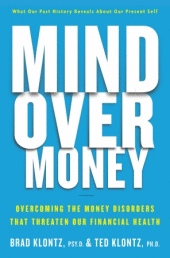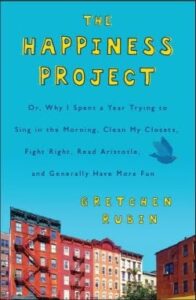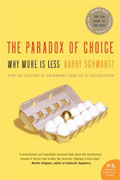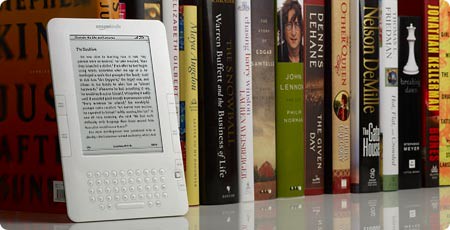Finding financial benchmarks and milestones
In last Wednesday's link round-up, I pointed to an article over at Gen-Y Wealth in which RJ has listed 20 financial milestones you should reach in your twenties. "I like this list," I wrote, "and I'd actually love to see similar lists for different age ranges. People could use it as a sort of road map to where they ought to be."
What sorts of milestones were on the list? Things like:
- Pay off your student loans.
- Build an emergency fund.
- Learn to negotiate.
- Set a target retirement date.
- Learn to give.
Like me, a lot of GRS readers found RJ's list of financial milestones useful. Often, there's no real way to know if you're doing things "right". How much should you be saving for retirement? How much should you have in your savings account? How soon should you buy a home? Get married? Have children?
Are e-books cost effective? The pros and cons of e-books
Yesterday, Google opened its ebookstore for business. The search giant joins Apple and Amazon (and Barnes & Noble) in a fast-growing field. Electronic books will never completely replace paper books, but they're going to make up a sizable portion — and maybe even the majority — of the market sooner than you think.
Naturally, more and more GRS readers are moving to e-books. In fact, I've had a couple of people ask me about them recently. For example, Peggy wrote last week to share her experience:
Book Review: The Skinny on Real-Estate Investing
Book Week at Get Rich Slowly comes to a close today. Well, I guess tomorrow's Ask the Readers is about books, but this is the final review. I've saved the best for last.
Over the past year, I've had a chance to read several titles in the "Skinny On" book series. And although I've only mentioned them in passing here at GRS, I love these books. Today I want to tell you about them.
The skinny on "The Skinny On"
Each of the "Skinny On" books follows the same format. The story is told in comic-book style using simple stick figures and line drawings. Every book tackles some personal finance or personal-development topic (credit cards, time management, and so on) by following the story of Billy and Beth, a couple with a problem. To help them solve the problem, author Jim Randel enters the story (as another stick figure) and talks through the best advice on the subject.
Banker to the Poor: Book Review and Summary
When J.D. announced that this week would be Book Week at GRS, I was excited about a set deadline for tackling a book from my ever-growing reading list. Since micro-finance and micro-credit have been of interest to me for the past four years or so, I decided to read Banker to the Poor: Micro-Lending and The Battle Against World Poverty by Muhammad Yunus. (J.D. reviewed the same book in 2007. Read his take here.)
Nobel Peace Prize winner Yunus is the founder of Grameen Bank, an organization that helps the world's poorest, especially women, escape poverty through micro-loans, which are small loans given to start a business.
Banker to the Poor chronicles Yunus' journey from a "bird's-eye-view economist, teaching elegant theories in a classroom, to a worm's-eye-view practitioner" and the creation of Grameen, a bank owned by its poor borrowers that boasts a loan recovery rate of 97.29%.
Book Review: How to Debt-Proof Your Marriage
Since my twin victories of paying off our last credit card and funding a summer of travel, my husband has begun to show interest in personal finance.
It's not that he wasn't supportive of my efforts before — he just preferred to support them from a safe, ignorant distance. A distance from which I handed him an envelope of cash each week to do the grocery shopping, he didn't ask too many questions, and somehow we were climbing out of debt.  He was more than happy to adopt any frugal-living strategy I suggested, as long as he didn't have to think about the Big Picture.
He was more than happy to adopt any frugal-living strategy I suggested, as long as he didn't have to think about the Big Picture.
That system worked, but I longed for more active participation from him. Not only because I wanted us to share equally in the journey toward financial freedom — I do want that — but also for a selfish reason. I wanted him to participate because he's better at this stuff than I am. He's a whiz at spreadsheets. The man has a Ph.d in Physical Chemistry. You don't get one of those without doing a few math problems.
Book review: The Art of Non-Conformity
In June 2008, a Get Rich Slowly reader dropped me a line to see if I'd like to have lunch. "My name is Chris," he said. "My wife Jolie and I will be visiting Portland next week. Do you have time to meet?"
"Sure," I replied. I was just beginning to meet colleagues and readers for lunch, a habit that has since become the best part of this job. "Let's meet at my favorite Thai place, Pok Pok."
I didn't know anything about Chris and Jolie when we met, but over noodles and rice, I grew to like them both. They told me about their adventures in Africa. Jolie gave me advice on how to recover from a running injury. Chris told me about his world travel and his new blog, The Art of Non-Conformity.
Book review: Mind Over Money
 "Financial success is more about mastering the mental game of money than about understanding the numbers." That's the first tenet of the Get Rich Slowly philosophy. That math of personal finance is simple; it's controlling your habits and emotions that's difficult.
"Financial success is more about mastering the mental game of money than about understanding the numbers." That's the first tenet of the Get Rich Slowly philosophy. That math of personal finance is simple; it's controlling your habits and emotions that's difficult.
In Mind Over Money, the father-son team of Ted and Brad Klontz provide a thorough discussion of the psychology of personal finance. They argue that our relationships with money are complex and not wholly rational. Our financial behavior is influenced by psychology and emotion and, especially, our personal history. We've all developed money blueprints (or "money scripts", as the authors call them) that shape how we deal with money. These are "the slow accumulation of the lessons we learn from the adults around us."
Money Blueprints
Some of our money blueprints are accurate; some aren't. But:
Book review: The happiness project
One of my core beliefs is this: It's more important to be happy than it is to be rich. My personal experience bears this out (though I'm fortunate to be both), as do the anecdotes I receive from GRS readers. In fact, of all my fourteen philosophies, this one is most important. It's so important that I chose to open Your Money: The Missing Manual with a chapter on happiness.
 No surprise then that for the past couple of years, one of my favorite blogs has been Gretchen Rubin's The Happiness Project. Rubin is a former lawyer who abandoned her promising high-paying career to follow her bliss: She decided to become a writer. She started her blog as a part of a year-long experiment to find new ways to be happy. She's now turned that experience into a best-selling book.
No surprise then that for the past couple of years, one of my favorite blogs has been Gretchen Rubin's The Happiness Project. Rubin is a former lawyer who abandoned her promising high-paying career to follow her bliss: She decided to become a writer. She started her blog as a part of a year-long experiment to find new ways to be happy. She's now turned that experience into a best-selling book.
The Happiness Project (the book) was released in late December. I'd hoped to review it when it was published, but work on my own book got in the way. Last week, as I was happily soaking up the sun in the jungles of Belize, I finally found time to read Rubin's book. It's fantastic.
You can negotiate anything
In May, I wrote about how to negotiate your salary. I argued that following the advice in Jack Chapman's Negotiating Your Salary: How to Make $1,000 a Minute is one of the best ways to improve your financial well-being. I still believe it. If you're looking for work or looking for a raise, you should absolutely read his book.
But negotiation is a skill you can use in other parts of your life, too. In fact, in You Can Negotiate Anything, Herb Cohen says that we negotiate constantly with our spouses, our children, our parents, our co-workers, and our friends.
The Three Crucial Variables
In every negotiation, Cohen says, there are three crucial variables: power, time, and information. You can hold the best hand at the table, but if you lack these three things, you're still going to lose.
The Paradox of Choice and the dangers of perfection
As important as I believe National Save for Retirement Week is, I have to confess that after four days (five, if you count Sunday), I'm bored of it. My short attention span has dwindled. (Imagine the difficulties I'm having as I try to concentrate on writing a book for three months solid!)
Instead, I want to shift gears for a moment and talk about a subject with immediate real-life implications: the dangers of perfection.
Good vs. Perfect

While doing research for my book (Your Money: The Missing Manual), I re-read The Paradox of Choice by Barry Schwartz. The Paradox of Choice is about how we think that choice will make us happy — but it doesn't. In fact, too much choice just might turn you into a basket case, especially if you're a certain type of person. Continue reading...
